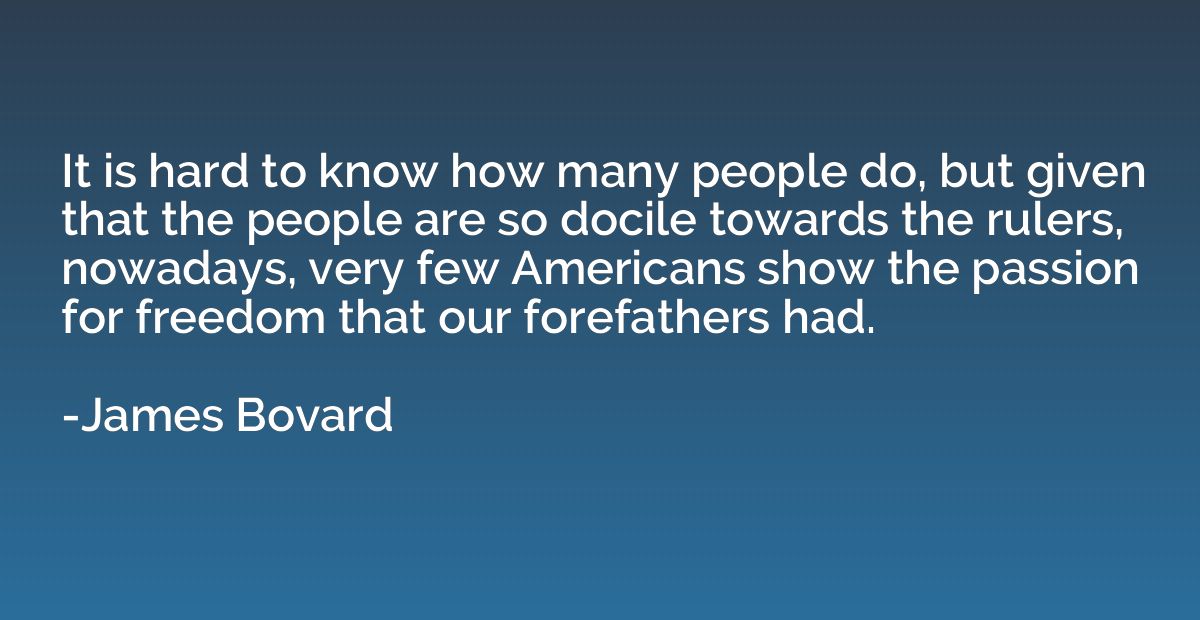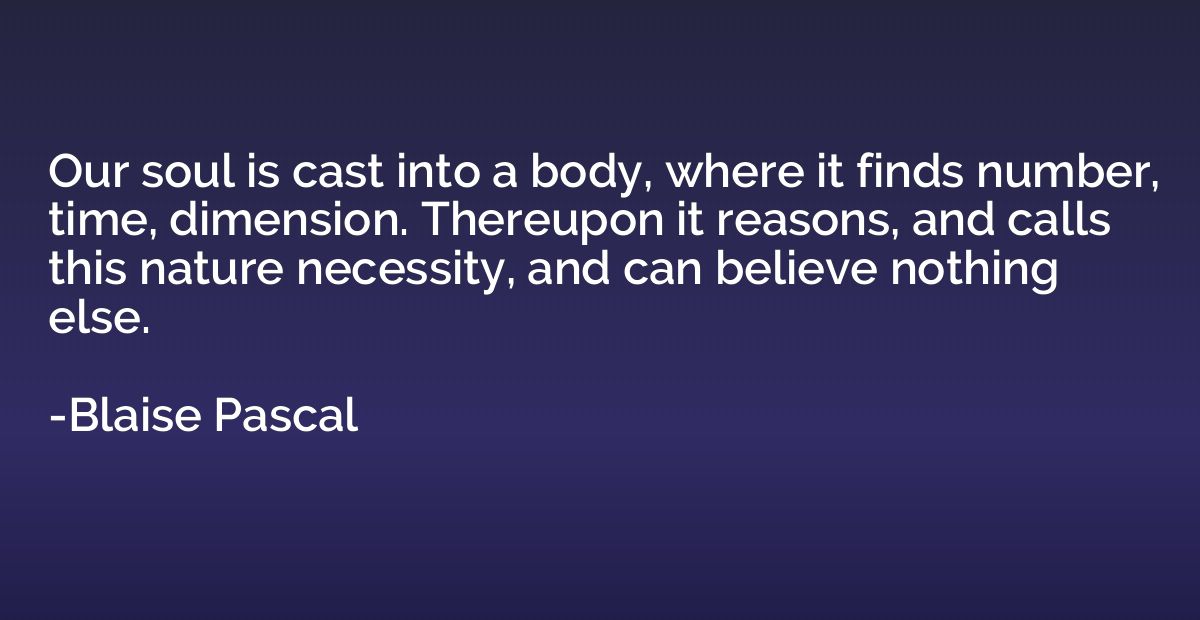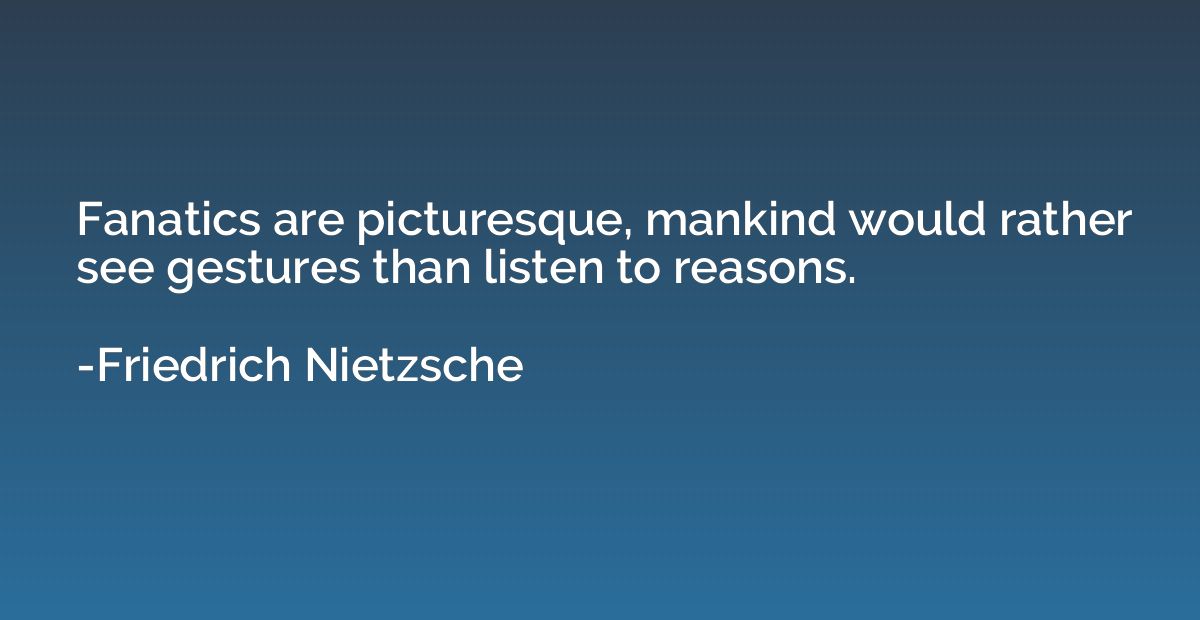Quote by James Bovard
It is hard to know how many people do, but given that the people are so docile towards the rulers, nowadays, very few Americans show the passion for freedom that our forefathers had.

Summary
This quote reflects the sentiment that not as many contemporary Americans possess the same level of passion for freedom as their forefathers did. It suggests that people have become more docile towards their rulers, implying a lack of defiance or vigilance in safeguarding their liberties. The quote emphasizes a perceived shift in societal attitudes and an observation that fewer individuals display the same intensity of commitment to the ideals of personal freedoms and independence that were prevalent during the times of the nation's founding.
Topics
Freedom
By James Bovard














